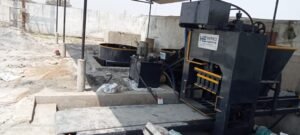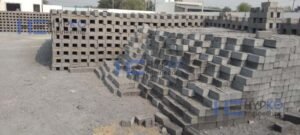The brick manufacturing business is widely recognized as a highly lucrative industry, which requires relatively low initial investment and has the potential to generate significant returns. However, before starting a brick manufacturing business, it is essential to consider several critical factors to ensure its success.
Choosing the Right Product and Market for a Brick Plant:
When embarking on a new business venture, conducting a thorough market analysis is crucial. It is essential to identify areas with a high level of residential, commercial, or industrial construction activity. It is also important to determine which type of brick is commonly used in these projects. Moreover, it is necessary to assess whether the market is willing to accept and adopt a new product. After careful consideration and analysis, select the appropriate product that would be suitable for establishing a brick plant.
Assessing Raw Material Availability for a Brick Plant:
After identifying the appropriate product for the brick plant, it is necessary to determine the availability of raw materials in the region and the distance from the source. It is important to note that the mix designs of the products can be modified based on the local availability of raw materials. Therefore, it is essential to select the best material that has a consistent supply and is available at the most competitive cost at your site. In addition, it is recommended to consult with the brick machine manufacturer by providing samples of the raw materials to ensure their suitability for the intended product.
Selecting the Optimal Site for a Brick Plant:
After determining the market, product, and raw material availability, it is essential to select the best location to establish the brick plant. Depending on local conditions and site costs, both owned or leased land can be appropriate. If leased, securing a long-term lease at a low rent is critical. In many cases, it is acceptable to locate the plant off the main road, but the cost of land rentals should not become a significant burden on the plant. Moreover, readily available infrastructure such as power, sheds, and rooms can be an additional advantage in minimizing the initial infrastructure expenses.
Conducting a Cost Analysis for a Brick Plant:
After obtaining the raw material and overhead costs, it is necessary to compute the total production cost of the bricks that the plant aims to manufacture. It is also essential to determine the market selling price of these products. With these costs in hand, estimate the monthly revenues and margins on the products. Based on these margins, it is possible to calculate the returns on investment and breakeven periods. Healthy ROI and quick payback periods can facilitate the rapid expansion of setting up additional plants.
Obtaining Permits and Registrations for a Brick Plant:
To comply with local laws, it is essential to acquire all the necessary permits and registrations to establish the brick plant. Typically, the registrations required for setting up a brick plant include incorporation of the firm, PAN card, GST registration, and labor license. In certain areas and cases, environmental clearances may also be necessary to establish the plant.
Developing a Plan for Required Working Capital:
One of the common errors that entrepreneurs make while establishing a brick plant is not accurately computing the working capital requirement. By allocating the entire budget to machinery and infrastructure setup, one may exhaust the funds and end up with minimal or no working capital. Without adequate working capital, it can be difficult to carry out brick production entirely. Typically, for a brick plant, having a minimum of one month’s full capacity working capital is advisable. Considering only 50% production efficiency for the first 2-3 months, having one month’s full capacity working capital will generally suffice to operate the plant for two months without any sales revenue. Once sales commence, the cash flow will be utilized as working capital in the long run. Securing vendors who provide credit on raw materials can be beneficial.
Acquiring Quality Equipment from a Trusted Manufacturer:
One of the most crucial factors in establishing and operating a highly successful brick plant is choosing the best brick machinery from a reputable manufacturer. The cheapest machinery available in the market may not always be the best choice. When selecting a machine manufacturer, consider the following factors:
How reliable is the company?
How is their manufacturing facility set up?
Do they use genuine branded components wherever possible?
Is the company’s management and technical team knowledgeable about the industry?
Do they provide erection and training services?
Does the company have a dedicated service team?
Does the machine manufacturer use the right quality standards?
Will they be able to deliver the machinery within the stated time frame?
By considering these factors, you can purchase high-quality equipment from a trusted manufacturer, ensuring the smooth and efficient operation of your brick plant.
Conclusion:
Starting a brick manufacturing business can be a lucrative venture with the potential to generate significant returns. However, to ensure success, it is essential to consider several critical factors before embarking on this venture. These factors include choosing the right product and market, assessing raw material availability, selecting the optimal site, conducting a cost analysis, obtaining permits and registrations, developing a plan for required working capital, and acquiring quality equipment from a trusted manufacturer. By carefully considering and analyzing these factors, entrepreneurs can establish and operate a highly successful brick plant.




